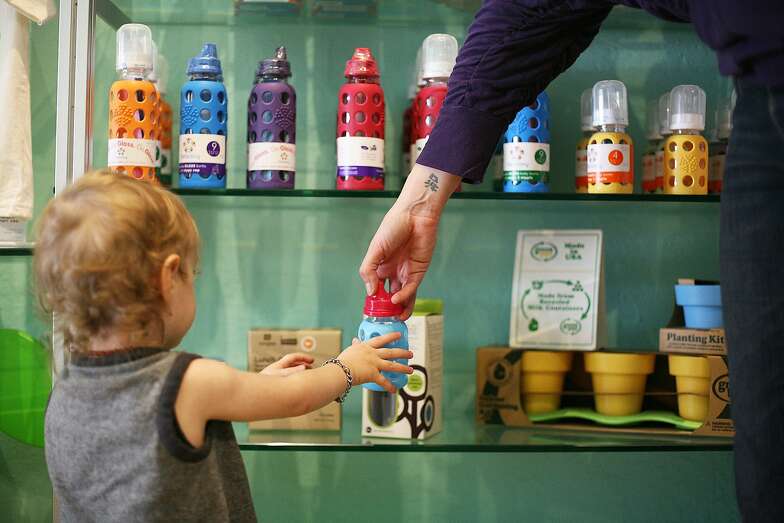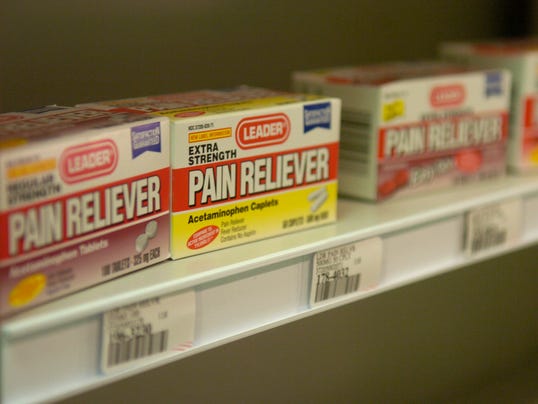 In 2008, the news burst on the media everywhere: common plastics contained potentially dangerous levels of bisphenol a (BPA) an additive that could be hazardous to consumer health. It leached into food and drinks, especially when plastics were warmed, posing a risk in baby bottles, water bottles, plastic storage containers and more. The plastics industry was reluctant to face the truth on BPA, but under pressure, it gave in — now, many plastic products are proudly labeled BPA-free.
In 2008, the news burst on the media everywhere: common plastics contained potentially dangerous levels of bisphenol a (BPA) an additive that could be hazardous to consumer health. It leached into food and drinks, especially when plastics were warmed, posing a risk in baby bottles, water bottles, plastic storage containers and more. The plastics industry was reluctant to face the truth on BPA, but under pressure, it gave in — now, many plastic products are proudly labeled BPA-free.
So that means you’re safe, right? Your plastics have been guaranteed free of the nasty chemical everyone was so worried about, and you can go back to business as usual.
BPA-free plastics may be less safe than those with chemical
Blood test predicts Alzheimer's disease
In a first-of-its-kind study, researchers have developed a blood test for Alzheimer's disease that predicts with astonishing accuracy whether a healthy person will develop the disease.
Though much work still needs to be done, it is hoped the test will someday be available in doctors' offices, since the only methods for predicting Alzheimer's right now, such as PET scans and spinal taps, are expensive, impractical, often unreliable and sometimes risky.
New laws permanently close 3 abortion clinics in Texas
Three Texas abortion clinics — including both facilities in the Rio Grande Valley and the sole clinic in Beaumont — have permanently shut their doors in the face of strict state laws currently being challenged in federal court.
Whole Women's Health, a plaintiff in the lawsuit challenging a sweeping package of abortion restriction passed by the Legislature last summer, has closed its clinics in McAllen and Beaumont, company CEO Amy Hagstrom Miller said Wednesday night.
“It may have taken me a little too long to accept it ... because the need is still here,” Miller said. “That's what's so heartbreaking.”
CDC: U.S. hospitals' poor antibiotic use puts patients at risk
 More than half of U.S. hospitalized patients get an antibiotic and health officials say a strong antibiotic stewardship program is needed for all hospitals.
More than half of U.S. hospitalized patients get an antibiotic and health officials say a strong antibiotic stewardship program is needed for all hospitals.
Dr. Tom Frieden, director of the Centers for Disease Control and Prevention, said antibiotics save lives, but poor prescribing practices are putting patients at unnecessary risk for preventable allergic reactions, super-resistant infections and deadly diarrhea.
Errors in prescribing decisions also contribute to antibiotic resistance, making these drugs less likely to work in the future, he said.
Hundreds of foods in U.S. contain 'ADA' plastics chemical: report
Nearly 500 foods found on grocery store shelves in the United States, including many foods labeled as "healthy," contain a potentially hazardous industrial plastics chemical, according to a report issued Thursday by a health research and advocacy group.
Azodicarbonamide, also known as ADA, was found as an ingredient in breads, bagels, tortillas, hamburger and hot dog buns, pizza, pastries, and other food products, according to a report by the Environmental Working Group, based in Washington.
Acetaminophen use in pregnancy may be linked to ADHD
 Acetaminophen, the most common drug taken by pregnant women, may be linked to attention deficit hyperactivity disorder (ADHD) in children, according to a large but preliminary new study from Denmark.
Acetaminophen, the most common drug taken by pregnant women, may be linked to attention deficit hyperactivity disorder (ADHD) in children, according to a large but preliminary new study from Denmark.
The study, published Monday in JAMA Pediatrics, found the disorder was more likely to develop in children whose mothers took the medication while pregnant.
Experts say the study does not prove a cause-and-effect relationship and more study is needed. It is likely to prompt concerns among women who have been told that the medication – found in Tylenol and many other pain and fever remedies – is safe during pregnancy.
Excessive tanning may be linked to mental disorders
 Despite warnings that tanning brings a greater risk of skin cancer, many still tan to excess and U.S. researchers suggest mental health issues may play a role.
Despite warnings that tanning brings a greater risk of skin cancer, many still tan to excess and U.S. researchers suggest mental health issues may play a role.
Lisham Ashrafioun, a Bowling Green State University doctoral student in psychology, and Dr. Erin Bonar, an assistant professor of psychiatry at the University of Michigan Addiction Research Center and a BGSU alumna, showed some who engage in excessive tanning might also be suffering from obsessive-compulsive and body dysmorphic disorders.
More Articles...
Page 37 of 233

 Health Glance
Health Glance






























